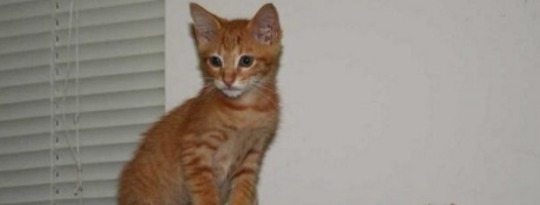
You can reduce your anxiety by being well prepared for situations that provoke anxiety in you. If public speaking makes you anxious and you’re about to give interviews and talks in support of your new book, preparing answers beforehand will help with the interviews, and preparing your bookstore chat will help with the book signings. A great deal of the anxiety we experience is anticipatory, and carefully preparing is the key to reducing this kind of anxiety.
Be Prepared: Practice, Practice, Practice
Being prepared — for your next concert, for your upcoming meeting with a literary agent, for the interviews you do in support of your current film — reduces anxiety. Pianist and conductor Vladimir Ashkenazy reflected on how musicians can effectively manage performance anxiety:
“Working hard at practice is also the best defense I know against pre-concert nervousness. That nervousness can never be entirely eliminated but it can be psychologically prepared for by convincing yourself that you have done all the homework necessary for a solid performance.”
Or as Spencer Tracy succinctly put it, “First of all, learn your lines.”
Practice and rehearsal can be great anxiety reducers. This also means practicing techniques and strategies that help you present yourself more confidently and fearlessly and that reduce your anxiety.
Mental Imaging: See It How You Want It To Be
You will also want to mentally rehearse upcoming events or interactions that typically provoke anxiety in you. As Ann Seagrave put it in Free from Fears,
“Imagery desensitization gives us an opportunity to think or imagine a situation the way we would like it to occur. Instead of imagining that a catastrophe will befall you, imagine that you will feel comfortable and secure in the situation. Rest assured that you will reach the point of being able to think through or imagine a feared situation without having an anxiety reaction.”
 Research conducted by Donald Meichenbaum has shown how mental imaging can become a technique of great power and versatility. When you mentally rehearse, you provide yourself with the chance to practice your coping skills and anxiety-management techniques. You bring the impending event or situation to mind, notice your negative thoughts or anxiety reactions, and stop everything to try out a technique right then and there. Mental imaging provides you with the opportunity to work through anxiety-provoking situations in the privacy of your own mind.
Research conducted by Donald Meichenbaum has shown how mental imaging can become a technique of great power and versatility. When you mentally rehearse, you provide yourself with the chance to practice your coping skills and anxiety-management techniques. You bring the impending event or situation to mind, notice your negative thoughts or anxiety reactions, and stop everything to try out a technique right then and there. Mental imaging provides you with the opportunity to work through anxiety-provoking situations in the privacy of your own mind.
Preparation: A Multifaceted Activity
Preparation is a large word and includes many sorts of activities, from really learning your lines to practicing how to speak about your novel to organizing your life so that there is room for the ambitious painting project you intend to begin.
It means rehearsing; it means readying yourself for what is to come; it means identifying likely challenges and obstacles and knowing what you will do should they occur.
Do you know what you will do if you start to doubt your current painting style, if you can’t find the right word to finish your poem, or if you learn that your only published novel is going out of print? Know what you will do.
Prepare yourself as best as you can for as much as you can. Doing so will forestall a lot of anxiety.
An Exercise For You To Do
Try using mental rehearsing on an upcoming situation or event. When you’re done, describe what you’ve learned from the experience.
Reprinted with permission of New World Library,
Novato, CA. ©2011. www.newworldlibrary.com.
This article was excerpted with permission from the book:
Mastering Creative Anxiety: 24 Lessons for Writers, Painters, Musicians, and Actors from America's Foremost Creativity Coach
by Eric Maisel.
 In his decades as a psychotherapist and creativity coach, Eric Maisel has found a common thread behind what often gets labeled “writer’s block,” “procrastination,” or “stage fright.” It’s the particular anxiety that can take the form of avoiding the work, declaring it not good enough, or failing to market it — and it can cripple creators for decades, even lifetimes. Eric Maisel shares: * Practical insights and proven techniques for overcoming the challenges and fears that plague creators of every kind * Teaching tales that convey effective approaches to creating fearlessly and abundantly.
In his decades as a psychotherapist and creativity coach, Eric Maisel has found a common thread behind what often gets labeled “writer’s block,” “procrastination,” or “stage fright.” It’s the particular anxiety that can take the form of avoiding the work, declaring it not good enough, or failing to market it — and it can cripple creators for decades, even lifetimes. Eric Maisel shares: * Practical insights and proven techniques for overcoming the challenges and fears that plague creators of every kind * Teaching tales that convey effective approaches to creating fearlessly and abundantly.
Click here for more info and/or to order this book on Amazon.
About the Author
 Eric Maisel, PhD, is the author of more than thirty works of fiction and nonfiction. His nonfiction titles include Coaching the Artist Within, Fearless Creating, The Van Gogh Blues, The Creativity Book, Performance Anxiety, Ten Zen Seconds, A Writer’s San Francisco, and A Writer’s Paris. A columnist for Art Calendar magazine, Maisel is a creativity coach and creativity coach trainer who presents keynote addresses and workshops nationally and internationally. Visit www.ericmaisel.com to learn more about Dr. Maisel. To learn about his innovative breathing-and-thinking techniques, visit www.tenzenseconds.com.
Eric Maisel, PhD, is the author of more than thirty works of fiction and nonfiction. His nonfiction titles include Coaching the Artist Within, Fearless Creating, The Van Gogh Blues, The Creativity Book, Performance Anxiety, Ten Zen Seconds, A Writer’s San Francisco, and A Writer’s Paris. A columnist for Art Calendar magazine, Maisel is a creativity coach and creativity coach trainer who presents keynote addresses and workshops nationally and internationally. Visit www.ericmaisel.com to learn more about Dr. Maisel. To learn about his innovative breathing-and-thinking techniques, visit www.tenzenseconds.com.






























